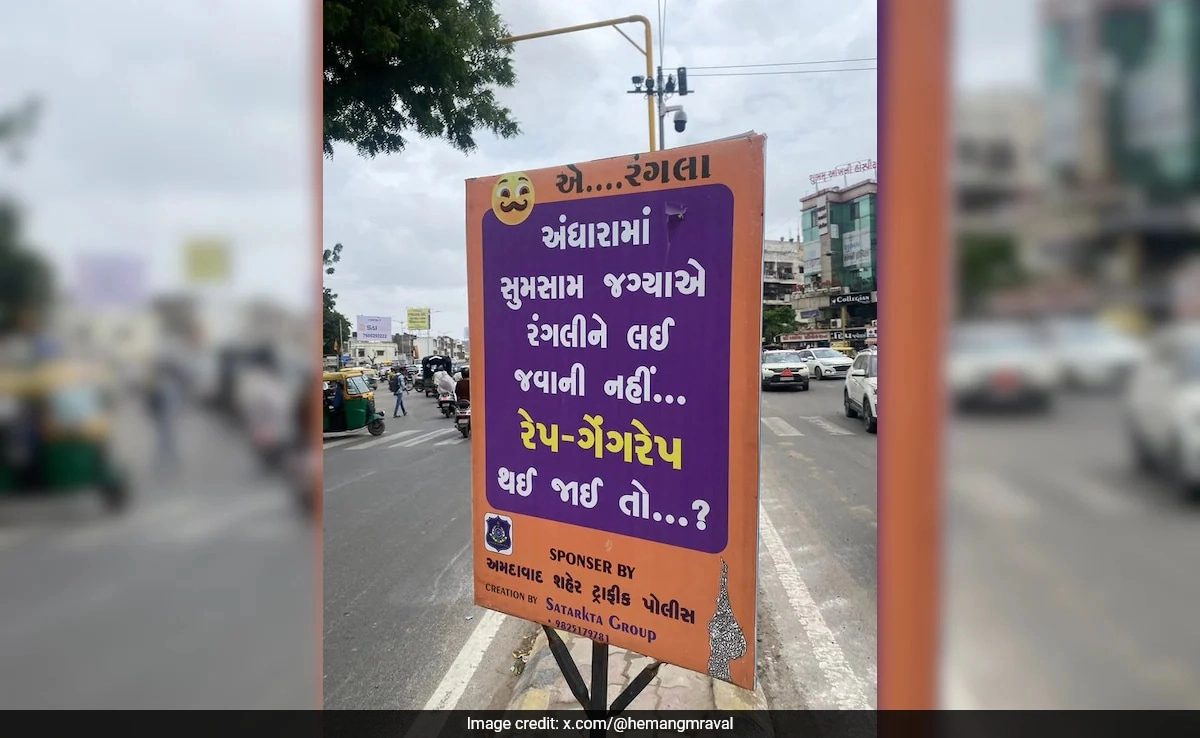In Gujarat, a controversial campaign initiated by the local traffic police has ignited significant backlash, particularly among women’s rights activists and the general public. The campaign features posters with a stark and alarming message: “Don’t Party Or You’ll Be Raped.” This assertion, which seemingly attempts to convey a warning regarding personal safety in the context of nightlife and social gatherings, has been met with widespread criticism for its victim-blaming implications. Many argue that such messages not only undermine the severity of sexual violence but also perpetuate harmful stereotypes that suggest victims are responsible for the crimes committed against them.
Critics of the initiative have voiced their concerns on various platforms, emphasizing that the message fails to address the root causes of sexual violence and instead shifts the blame onto potential victims. By suggesting that individuals, particularly women, should modify their behavior to avoid assault, the campaign inadvertently reinforces a culture of fear and silence surrounding the issue of sexual violence. Activists have pointed out that rather than issuing warnings to potential victims, a more effective approach would involve holding perpetrators accountable and fostering a societal shift toward respect and consent.
The backlash has further intensified discussions around how law enforcement addresses issues of sexual violence and public safety. Many believe that campaigns like this not only misguide public perception but also detract from the urgent need for systemic change in how society views and responds to sexual assault. Advocates for women’s rights are calling for a reevaluation of such messaging, urging authorities to focus on education and prevention strategies that prioritize consent and respect for individuals’ autonomy.
As the debate continues, it highlights a broader societal challenge: the need to change narratives surrounding sexual violence and empower individuals rather than instill fear. The controversy surrounding these posters serves as a reminder of the delicate balance required in communicating safety messages, especially when it comes to sensitive topics like sexual assault. Only through a collective effort to challenge stereotypes and promote awareness can society hope to create a safer environment for everyone.




